British Council in Uzbekistan: A vision for education and cultural exchange
As the British Council celebrates its 90th anniversary globally, its 28 years in Uzbekistan stand as a testament to its commitment to fostering education and cultural exchange. Denise Waddingham, Director of the British Council in Uzbekistan and Cluster Lead for Central Asia, reflects on the organization's contributions, ongoing projects, and future plans.
Established in the UK on December 5, 1934, though under a different name, the British Council has maintained its core mission for nine decades. Denise, who has served the organization for 25 years, emphasizes the importance of building connections, understanding, and trust between the United Kingdom and countries worldwide. She notes, “Our presence in Uzbekistan reflects this mission, with 28 years of cooperation that promotes prosperity and security.”
This ongoing partnership has cultivated a mutual understanding and contributed to reforms in education, the arts, and cultural development, creating a foundation for sustainable collaboration between the UK and Uzbekistan.
Work of the British Council in Uzbekistan
The British Council's efforts in Uzbekistan focus on arts, culture, and education, with a particular emphasis on English language programs. It connects organizations in the UK with their counterparts in Uzbekistan to support sectoral development and foster international collaboration.
Denise Waddingham explains, “We build connections, understanding, and trust between people in the United Kingdom and countries all around the world.”
Advancing English language education
A significant part of the Council's work involves English language education. Collaborating closely with the Ministry of Preschool and School Education, it aligns with Uzbekistan’s 2030 development strategy for higher education. The British Council’s initiatives complement government-led reforms.
One notable contribution has been its involvement in establishing Westminster International University in Tashkent, reflecting its commitment to connecting the UK with Uzbekistan. Additionally, it has supported English curriculum development and pre-service teacher training across 18 institutions.
Promoting creativity in higher education
Through the Creative Spark program, the British Council has fostered collaborations between higher education institutions in Uzbekistan, the UK, and across Central Asia. This initiative explores integrating creativity into educational curricula, providing new opportunities for innovation and collaboration in the region.
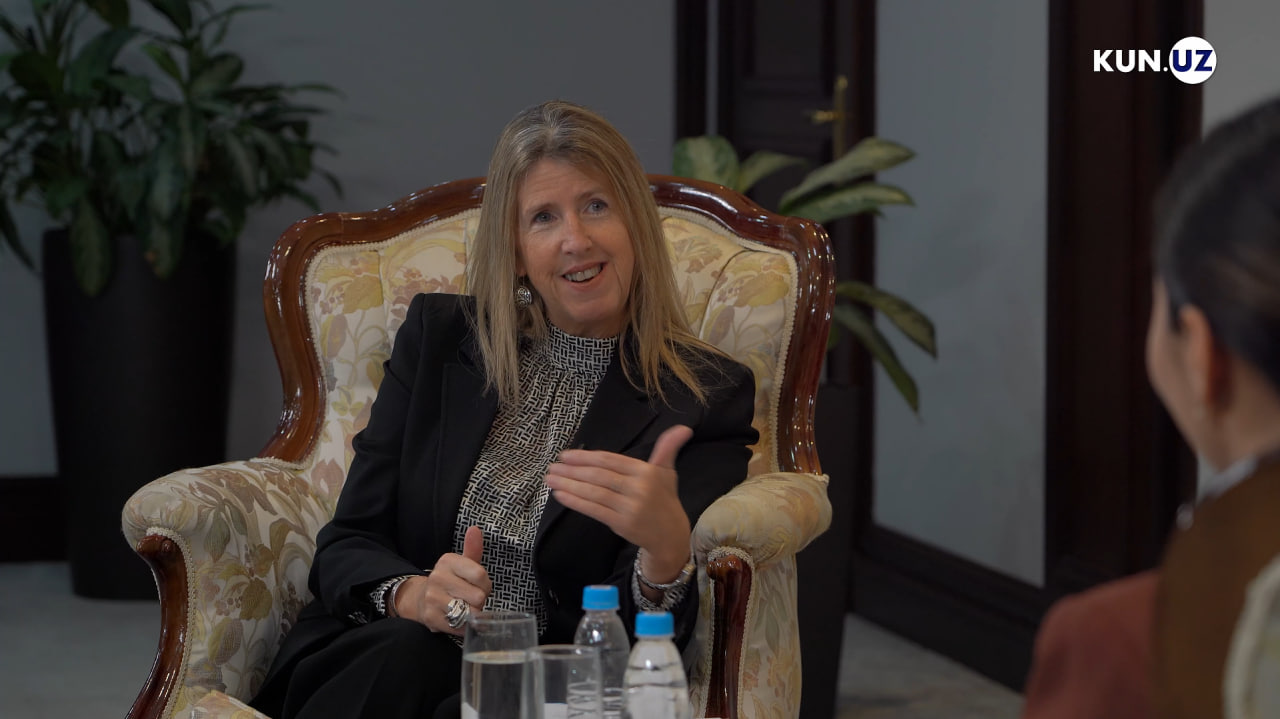
“we really build connections, understanding, and trust between people in the United Kingdom and countries all around the world.”
The number of schools involved in the program increased from 30 to 55, and funding from UK International Development and the UK government allowed expansion to 116 schools, including those in rural areas. This aligns closely with the presidential decree on teacher professional development and aims to support a culture of ongoing development in schools.
The British Council also operates two main digital platforms: the Learn English website and the Teach English website. Learn English is accessible to everyone, offering resources for children, teenagers, and adults, including games, reading materials, and live events.
For educators, Teach English provides lesson plans, teaching ideas, and a supportive community for teachers. Over the past few years, the British Council has built an online teacher community, involving around 10,000 English teachers in Uzbekistan in training courses.
In collaboration with universities, the British Council focuses on linking UK institutions with those in Uzbekistan. A standout initiative is the Digital University, developed in partnership with Wolverhampton University in the UK.
"I’m sure there will be plenty of future initiatives arising from these partnerships," says Ms. Waddingham.
British Council's contributions to arts, culture, and inclusion in Uzbekistan
Through global arts programs, the British Council connects artists and audiences while showcasing UK culture. A flagship initiative in Uzbekistan, Culture Connects, provides collaboration grants of up to £10,000, enabling Uzbek artists to partner with their UK counterparts.
Ms. Waddingham mentions several events, including Sublimation Fest, an electronic music festival, a poetry event in Samarkand, a joint documentary filmmaking project, and a collaboration with deaf photographers. This includes bringing a UK photographer to work with their Uzbek counterparts in Tashkent.
Additionally, Creative Economy Mapping was another initiative aimed at supporting this sector. The British Council participated as the official knowledge partner at the World Conference of Creative Economy, facilitating discussions and networking among global experts, including representatives from the UK.
“This work continues to support the development of the Creative Economy, which is crucial. On the one hand, it's about preserving the incredible heritage, arts, and culture of Uzbekistan and supporting sectors like crafts. On the other hand, it's about exploring new sectors within the Creative Economy, offering opportunities for women, people from rural areas, and individuals with disabilities,” highlights Ms. Waddingham.
Another program, Culture Responds to Global Challenges, emphasizes inclusion, sustainability, and climate change within the arts sector. A notable initiative under this program was a partnership with London’s Natural History Museum for the International Wildlife Photographer of the Year competition. It included a photography workshop for Uzbek students, culminating in an exhibition at Tashkent’s House of Photography.
Diversity and inclusion in education
In the area of diversity and inclusion, the British Council has been working with the Ministry of Higher Education to improve access to university opportunities for people with disabilities and disadvantaged backgrounds.
In 2022, the first Inclusive University Conference in Uzbekistan was held in partnership with Westminster International University in Tashkent and the University of Westminster in London. This event brought together rectors, educators, and specialists from Uzbekistan and the UK to identify and address challenges. As a result of this conference, a working group was formed to develop best practices for making education more accessible.
Future goals and prospects
The British Council plans to continue working on current projects in collaboration with partners.
“Many of our programs are multi-year initiatives, as real impact and change take time,” says the Director.
The ongoing teacher development program, funded by UK International Development, supports teacher education and professional development.
Another important area is UK qualifications, where the British Council delivers thousands of English language exams across Uzbekistan. These exams provide opportunities for people to access higher education and international prospects.
The demand for UK education is growing. According to 2022-2023 statistics, nearly 10,000 Uzbek students are studying UK programs within Uzbekistan. With more UK universities establishing themselves here, this number is expected to increase.
“To support this, we’ve established a network of universities offering transnational education in English in Uzbekistan, launched just yesterday,” highlights Ms. Waddingham.
According to 2022-2023 statistics, nearly 10,000 Uzbek students are studying UK programs within Uzbekistan. With more UK universities establishing themselves here, this number is expected to increase.
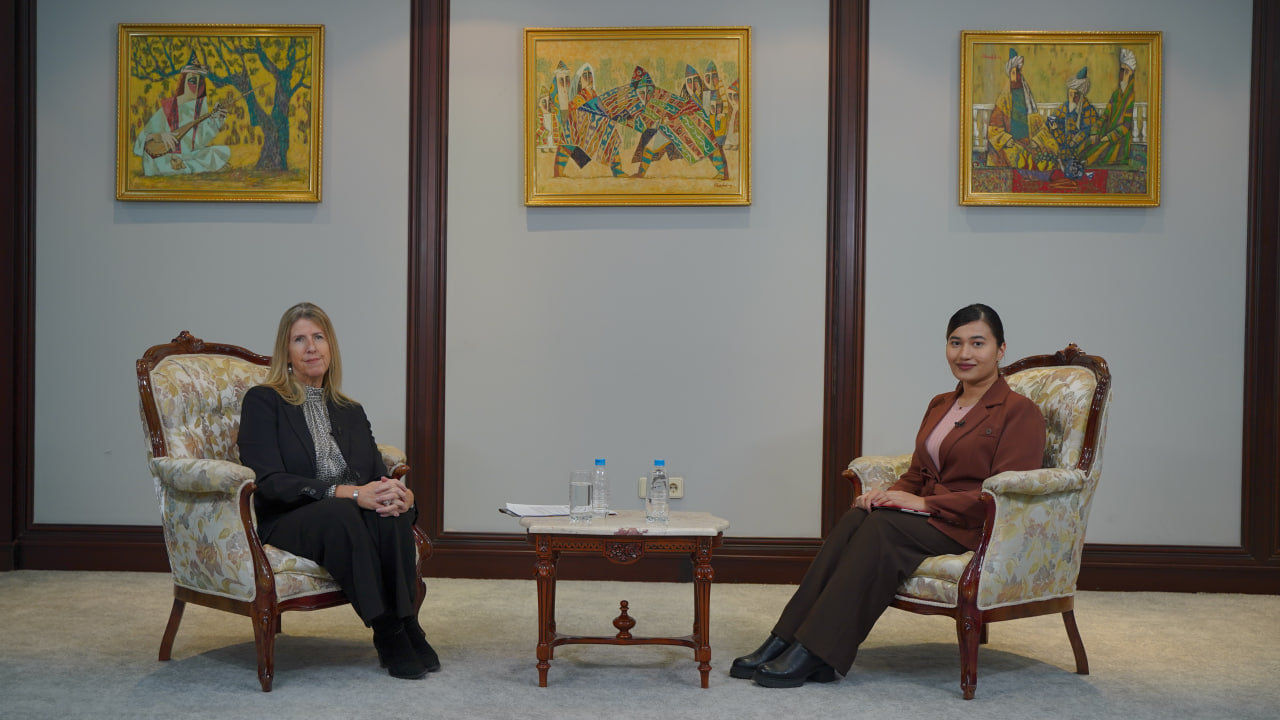
The British Council's commitment to inclusion remains at the heart of its work, fostering mutual understanding and trust between the UK and Uzbekistan. Through collaboration with local and international partners, it aims to overcome challenges and continue supporting Uzbekistan’s cultural and educational development.
Related News
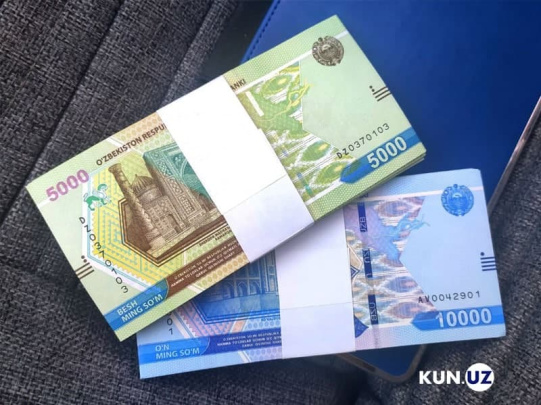
11:53
Tuition fee payment deadline for students extended
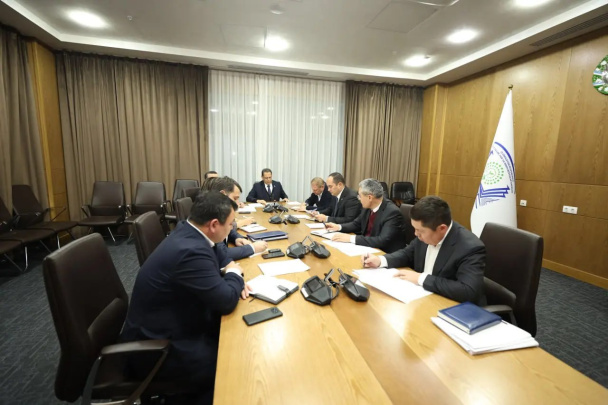
16:30 / 21.12.2024
Additional bus and train services to be arranged for students on domestic routes during winter breaks
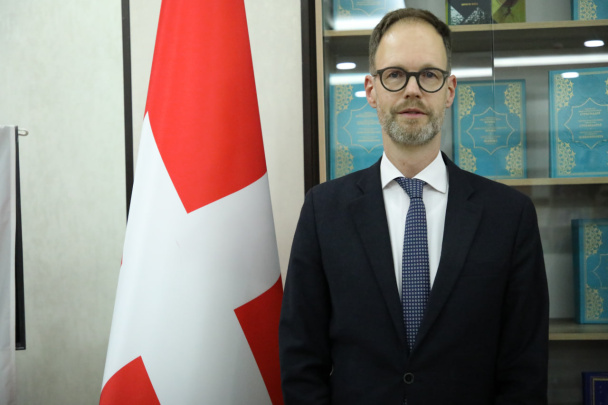
19:20 / 19.12.2024
Geneva Conventions at 75: Swiss Ambassador highlights Uzbekistan's role in humanitarian efforts

19:28 / 16.12.2024



